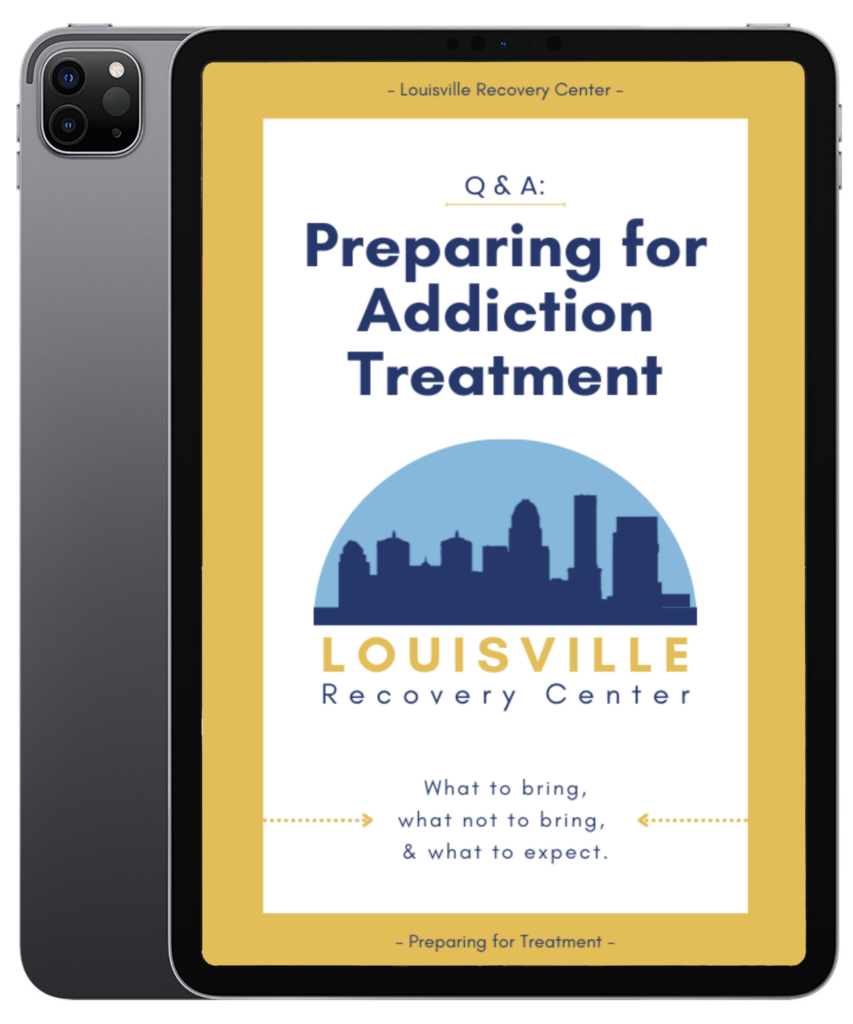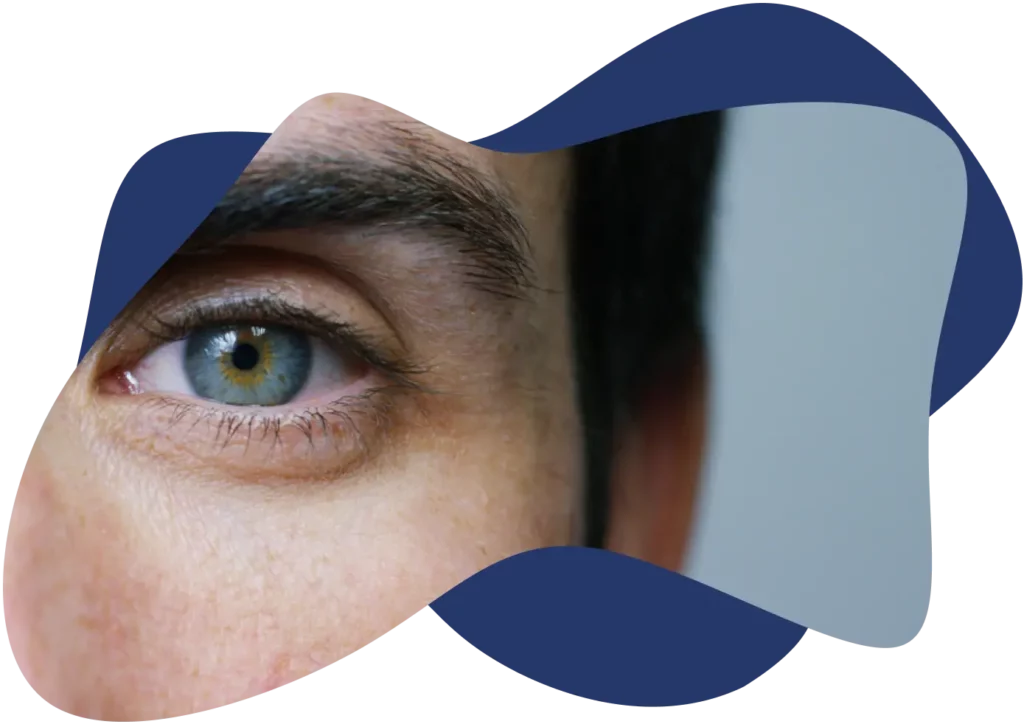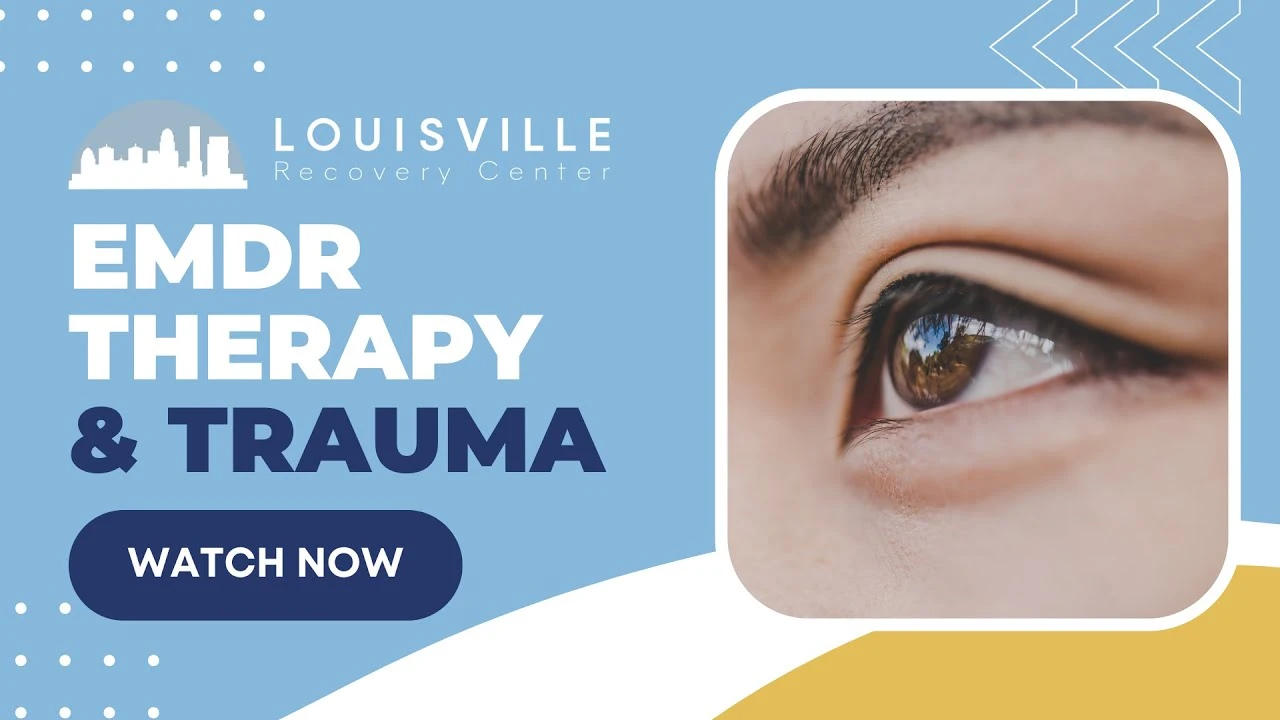Eye Movement Desensitization And Reprocessing
at Louisville Recovery Center
EMDR therapy, a type of psychological treatment introduced in 1990 by psychologist Francine Shapiro, is an effective treatment for people with posttraumatic stress disorder (PTSD), anxiety, panic, and other behavioral problems. EMDR therapy allows you to overcome your past and move forward with your life.
Louisville Recovery Center offers various mental health treatment services, including EMDR therapy. Continue reading to find out more regarding this therapeutic method and to see if it would be right for you.
What is EMDR?
EMDR, which is short for Eye Movement Desensitization and Reprocessing Therapy, is a phase-based approach to treating trauma and other issues by connecting the traumatized individual to the memories, thoughts, feelings, and body sensations associated with the trauma in a safe and measured manner, thereby allowing the brain’s natural healing powers to steer the mind toward a healthier state.
According to this psychotherapy, trauma and other adverse or difficult experiences overwhelm the brain’s natural healing processes, and bilateral stimulation during the client’s recollection of the trauma in the therapeutic setting allows for a quicker and more complete recovery
Individuals can safely process traumatic information through EMDR until it is no longer psychologically disruptive to their lives. As time passes, exposure to traumatic memories will no longer induce negative feelings or distressing symptoms.

Fill Out This Quick Form To Download Our FREE Preparing For Treatment eBook
How Does EMDR Work?
A person undergoing EMDR is directed to focus on an upsetting memory and identify the self-beliefs it evokes. The technique then helps them modify their self-perception by associating it with a positive memory rather than a negative one if it is connected to bad memory.
The focus is on an external stimulus that produces fast eye movements when reviewing the memory. The individual identifies all the sensations and feelings associated with the memory. This procedure is typically carried out by watching the emdr therapist move two fingers. After each set of bilateral exercises, the individual is asked to express how they feel. This process repeats until the trauma has been processed and the memory is no longer unpleasant. Then, the positive belief that has been selected is installed using bilateral exercises in order to replace the negative belief. This happens in eight phases.

The eight phases of EMDR treatment are:
- History taking – Before beginning treatment, your therapist will assess your symptoms and health history so that they may get a better idea of where you are in the treatment process.
- Client preparation – During treatment, your therapist will provide you with a few methods to help you manage and handle your emotional or psychological distress or uncomfortable feelings.
- Assessment – Your therapist will assist you in selecting a specific memory to address, as well as any associated aspects of that memory, during this phase of EMDR therapy.
- Desensitization – During bilateral stimulation (BLS), which may consist of making certain eye movements, tapping, audio tones, or blinking lights, you’ll focus on that negative memory, thought, or image. Afterward, you’ll let your mind wander and notice whatever thoughts and feelings emerge.
- Installation – In phase 5, you will “install” a positive image to replace the undesirable one you identified in phase 3. You will once again concentrate on this self-image through BLS.
- Body scan – Your physiotherapist will inquire if the targeted memory triggers any uncomfortable physical sensations or pain. If it does, they will guide you through another round of BLS.
- Closure – Your therapist will assess your progress after each session and suggest methods to maintain improvements and manage your symptoms.
- Reevaluation of treatment effect – Your therapist will inquire about the memories and feelings you worked on in the prior session during the re-evaluation phase. If those memories still cause pain, they may continue to address them. If not, they’ll likely want to move on to new issues.
Which Conditions Can EMDR Therapy Treat?
The majority of mental health issues can be treated using EMDR. This therapy can be used on people of all ages, including children. EMDR is particularly beneficial when it comes to treating anxiety, panic disorders, PTSD, and trauma.
EMDR Therapy for Anxiety in Louisville
When we are anxious, our thoughts often exacerbate our unease. EMDR is able to shift the tone of such thoughts by asking the patient to verbalize an anxious thought and then picture how it would play out in real life. The hand/eye movement begins after the patient rates their anxiety level.
When patients focus on an alternative positive image to replace their fearful one, their anxiety level decreases. During the treatment, the patient is fully focused on the positive alternative. After the treatment, their anxiety level is usually lower, and their distress level is rated lower as well.
EMDR Therapy for Panic Disorder in Louisville
EMDR therapy interrupts the vicious circle of panic attacks by helping your brain remember that specific circumstances are not dangerous or overwhelming. When you use EMDR, you go back to the location where the panic attacks started, and you teach your brain that you can handle the situation. Using EMDR, you focus on incidents that triggered panic attacks, and the therapist helps you link the emotional sector of your mind (limbic system) with the rational part that knows you’re safe.
EMDR Therapy for PTSD in Louisville
EMDR is a technique that helps people who have been through a trauma process memories and feelings that are difficult to handle. People with PTSD often have trouble understanding their traumatic experiences after a trauma has occurred. EMDR allows you to process these memories so you may start to heal. Trauma-focused therapies help you process the trauma by paying attention to a backward and forward sound or movement while recalling the traumatic event until a shift occurs in how you remember it.
Processing of a specific memory usually requires one to three sessions. EMDR therapy differs from other trauma-focused therapies in that it does not focus on prolonged exposure to traumatic memories, elaborate descriptions of the trauma, challenging dysfunctional beliefs, or homework assignments.
EMDR Therapy for Trauma In Louisville
A person’s entire body responds to threats to survival and security. A single incident, such as an accident, illness, or act of violence, may cause trauma. Chronic, less visible distress, such as being rejected, bullied, or ignored at home or in school, may result from years of abuse, either physical, emotional, or sexual. Everyday events may trigger alarms, stress hormones, and sensory overload in the nervous system, all of which hijack the thinking brain and overwhelm it.
With bilateral sensory input, a person with trauma, the client, is treated using EMDR. The goal is to elicit both sides of the brain via hand tapping or side-to-side eye movements, which mimic the rapid-eye-movement phase of sleep. People require the assistance of their entire brain to handle trauma. Survivors of trauma who undergo EMDR are able to master how to deal with the shutdown that often occurs when they remember a traumatic event. Moreover, they are able to master how to stay in the present moment rather than becoming inundated with memories of the body, staying grounded in the present moment.
How Effective is EMDR Therapy?
According to the EMDR Institute, over 30 controlled outcome studies on EMDR therapy have demonstrated its effectiveness. 90% of trauma survivors apparently had no PTSD symptoms after just three sessions in some of these studies.
The WHO, the APA, and the Department of Veterans Affairs all endorse EMDR as a PTSD treatment option. Some research indicates that EMDR might be beneficial for other mental health issues. For example, it may improve psychotic symptoms (in those with both schizophrenia and PTSD).

Benefits of EMDR Therapy in Louisville
Individuals who suffer from PTSD, anxiety, trauma, or panic disorders can benefit greatly from EMDR therapy. Even if you don’t have a mental health condition, you may benefit from EMDR if you find yourself battling with detrimental thought patterns or poor self-image. The following are just a few of the many benefits of receiving EMDB therapy:
- Heal from Trauma – It can be hard to avoid triggers that make you feel like you’re reliving your trauma once it’s imprinted in your mind. Using EMDR, your brain can reorder the thoughts, feelings, and experiences connected to your trauma so that you no longer feel like you’re controlled by it.
- Improve Self-Image – It can be simple to become trapped in a self-doubt and self-criticism loop, just as it is simple to become consumed by anxious thought patterns. Using EMDR, you can break these thought patterns and replace them with more positive beliefs about yourself and your world. Through reprocessing the factors that have influenced your self-image, you will be able to overcome your negative thoughts and develop a more positive self-image.
- Improve Anxiety – Because EMDR therapy helps you release your circular thinking patterns, it can help you with generalized anxiety, phobias, and other anxiety disorders. Your anxious thoughts may seem inescapable when they become entrenched in your mind. Using EMDR, you can address your concerns and fears without becoming trapped in your anxiety.
EMDR at Louisville Recovery Center
Your perspective on your trauma, worries, and other problems in life can be entirely altered by EMDR therapy. You may feel like you’ll never escape from your negative thoughts or stop ruminating about your trauma, especially if your brain has been locked in an unhealthy pattern for a long time. You may always alter your thinking patterns, and the benefits will last a lifetime.
At Louisville Recovery Center, EMDR therapy is provided to all clients who could benefit from it. We strongly believe in the effectiveness of this procedure, as our specialists are trained and experienced in providing it. For more information on EMDR or to speak with a treatment specialist at Louisville Recovery Center, contact us right away.

